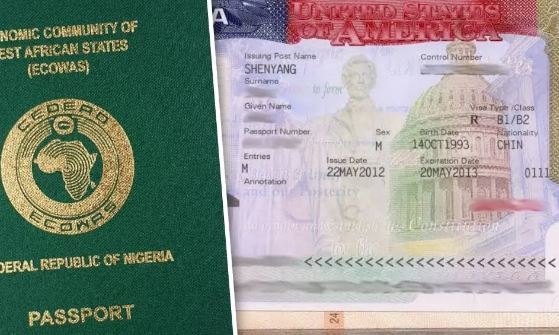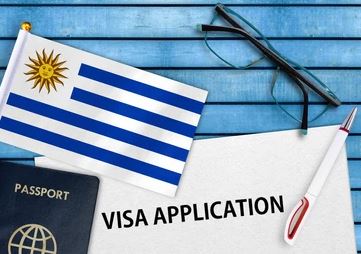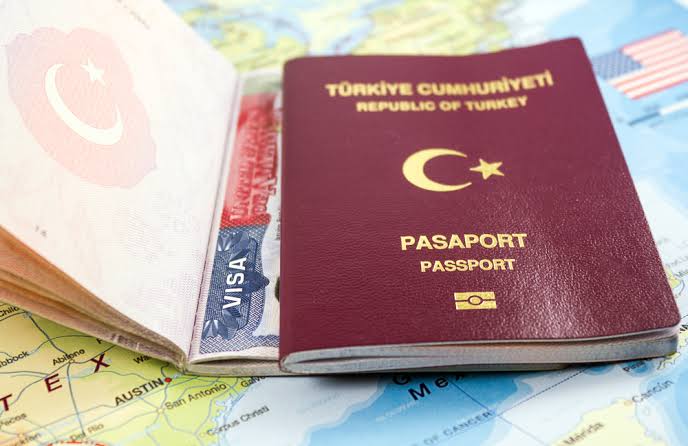Nigeria ranks second among African countries with the highest Schengen visa application rejections. You may wonder why out of about 87,000 Nigerians who apply for Schengen visas each year, there are about 39,000 rejections. The reason is the Schengen visa application requirements and steps in Nigeria.
Many people get discouraged when they see the long requirements for a Schengen visa. Sometimes, they’re tempted to take seeming shortcuts and end up playing into the hands of scammers.
Don’t be one of them. What are the Schengen visa application requirements and steps in Nigeria? Read here.
Table of Contents
- 1 What are the Schengen Visa Requirements in Nigeria?
- 1.1 #1. Schengen Visa Application Form
- 1.2 #2. Your Nigerian Passport
- 1.3 #3. Recent Photographs
- 1.4 #4. Relevant Certificates
- 1.5 #5. Proof of Accommodation
- 1.6 #6. Flight Itinerary
- 1.7 #7. Travel Health Insurance
- 1.8 #8. Evidence of Paid Visa Fee
- 1.9 #9. Cover Letter
- 1.10 #10. Copies of Prior Schengen Visas (if any)
- 1.11 #11. Proof of Finance
- 1.12 #12. Birth Certificate and Parental Consent
- 2 What are the Schengen visa Application Steps?
- 3 Why are Schengen Visa Applications in Nigeria Rejected?
What are the Schengen Visa Requirements in Nigeria?
You must submit the following documents to apply for a Schengen visa in Nigeria.
#1. Schengen Visa Application Form
The application form requires that you fill in your personal information. Remember that the details on your application form should correspond with what you have in other documents. Also, they should be accurate. Download your Schengen visa application form here.
#2. Your Nigerian Passport
Ensure that your passport is not older than ten years and will still be valid for an additional three months after you return from the Schengen zone.
#3. Recent Photographs
Most embassies require two recent photographs taken against a clear background, with good lighting, and showing your features clearly. These photos must not be older than six months.
#4. Relevant Certificates
Birth, marriage, or divorce certificates may be necessary, depending on the type of visa you apply for.
#5. Proof of Accommodation
Submit proof of hotel reservations, rental arrangements, or the address of a family member or friend you plan to stay with.
#6. Flight Itinerary
Although you don’t have to pay for your round trip until your visa application is approved, you can make reservations. You must submit evidence of these reservations and other internal flights you will take when you enter the Schengen zone.
#7. Travel Health Insurance
You must take out travel health insurance to ensure that you receive instant and suitable medical care if you fall sick or have an accident. The expected medical coverage amounts to EUR 30,000 and is approximately ₦14,032,000 (subject to currency fluctuations).
#8. Evidence of Paid Visa Fee
While some embassies require you to pay your Schengen visa fees online, others prefer an over-the-counter payment. If the latter is the case, you will pay your visa fees when you visit the embassy for your interview.
#9. Cover Letter
A cover letter gives details of your planned trip. The letter should answer specific questions like what you’re going to the Schengen zone for (study, business, tourism, or family visit, etc.), where you will stay, the length of your trip, and the return date.
#10. Copies of Prior Schengen Visas (if any)
If you’ve traveled to the Schengen zone before, it would help your case if you could submit previous visas.
#11. Proof of Finance
In order not to be a burden to your hosts or the country you will visit, you must show that you can take care of your financial needs while in the Schengen zone. Such proof can be pay stubs, bank statements, or employment letters.
#12. Birth Certificate and Parental Consent
If you’re traveling with a minor (a child who is younger than 18 years), you must submit their birth certificate and parental consent if any or both parents are not going. Both parents must sign the minor’s application form as proof of consent.
What are the Schengen visa Application Steps?
The steps to apply for the Schengen visa are simple once you have gathered the necessary documents. Here they are:
Step 1. Choose your visa type
At this point, you have decided to go on a tour of Europe (Tourist visa), visit family or friends (Visit visa), conduct business (Business visa), or go for a short study (Study visa).
Step 2. Decide where to apply
There are hundreds of Schengen embassies in Nigeria. Choose where to apply. In doing so, consider the country you will make your point of entry and the proximity of the embassy in Nigeria.
Step 3. Book a visa appointment
You can do this by email or through a phone call. You can also visit the embassy website and secure a date.
Step 4. Gather the necessary documents
Now that you have an interview date start gathering the documents as indicated above.
Step 5. Submit your visa application
Some embassies accept online submissions, while others prefer you submit them in person on the interview date. When you book your visa appointment, find out what the embassy likes.
Step 6. Pay your visa fees
The visa fee is a flat rate of Euro 80 for adults – about ₦40,800. Please note that this figure (₦40,800) is subject to fluctuations in the local currency.
Step 7. Receive your visa
If you took did all of the above carefully and satisfactorily, there’s no reason why you shouldn’t receive your visa within 15 days. Congratulations! Prepare to visit the Schengen zone.
Why are Schengen Visa Applications in Nigeria Rejected?
Aside from not meeting the requirements and following the wrong application steps, there are other reasons why Nigerians experience high volumes of Schengen visa rejection. Here are some of them!
1. Incomplete applications
If you habitually fill out forms without reading the instructions first, stop it! Schengen visa application forms come with instructions; you should read them and be sure you understand them before you start filling them.
2. Inaccurate responses
False responses would undoubtedly get you a rejection. Always answer correctly in filling out your form and during your visa interview.
3. Inadequate documentation
You are expected to present many documents, depending on the type of Schengen visa you are applying for. Each document is necessary; without it, you will undoubtedly receive a rejection.
4. Insufficient evidence
Sometimes a rejection occurs because a Nigerian applicant is not able to provide enough proof of finance by way of pay stubs and other guarantees of financial solvency. Another reason is the lack of evidence to show that he intends to return home after the visit.
5. Fear of overstay
Nigerians habitually overstay their welcome in the Schengen zone, becoming illegal immigrants. Visa officers are aware of this, and once they get the wrong vibes from an applicant, they deny them entry.
Wrapping Up!
In simple terms, meeting the Schengen visa requirements and following the right application steps bring you one step closer to acquiring a Schengen visa. If you have any further questions, please drop a comment below. I will respond to it as soon as possible.
And, since you are applying for a Schengen visa, you may need further assistance in completing your visa. I can help you process these visas at a low cost and in the shortest period possible. Simply contact me using the Contact Us page.
Read Next:

Emmanuel Peter is the founder of Naijajapa.com. Experience gained in the Study abroad and Immigration industry since 2017. A graduate of International Relations from ABU Zaria.








